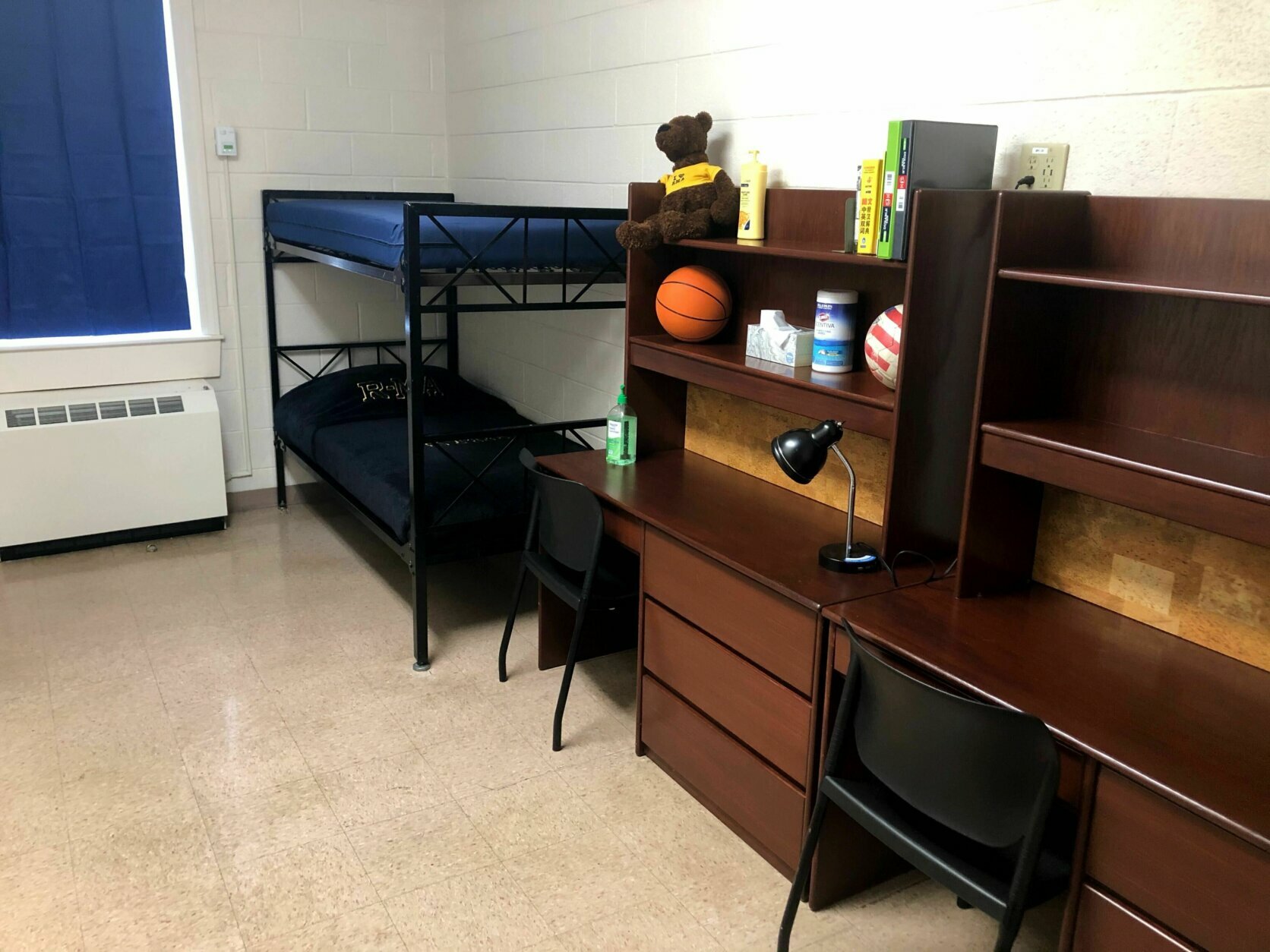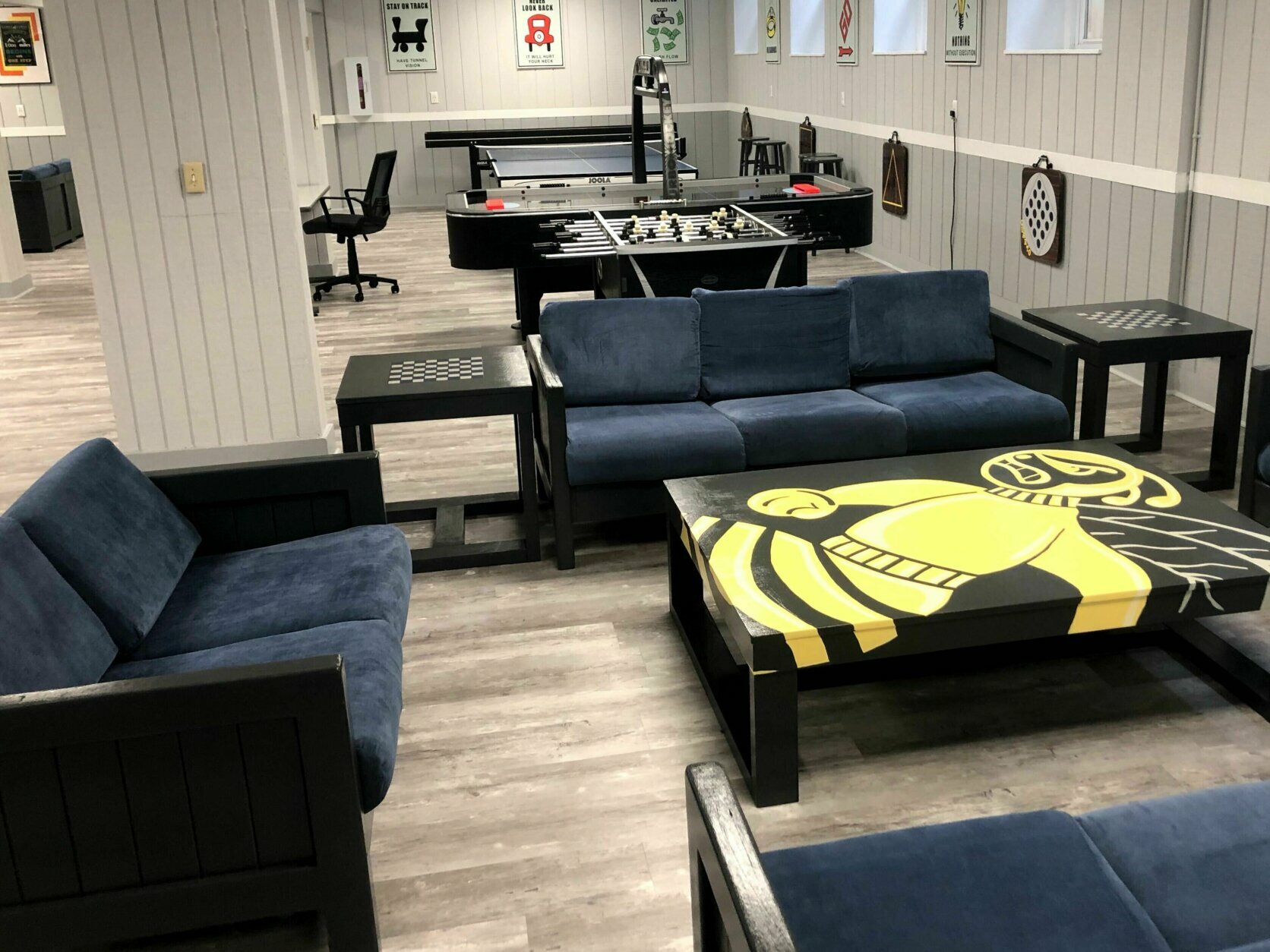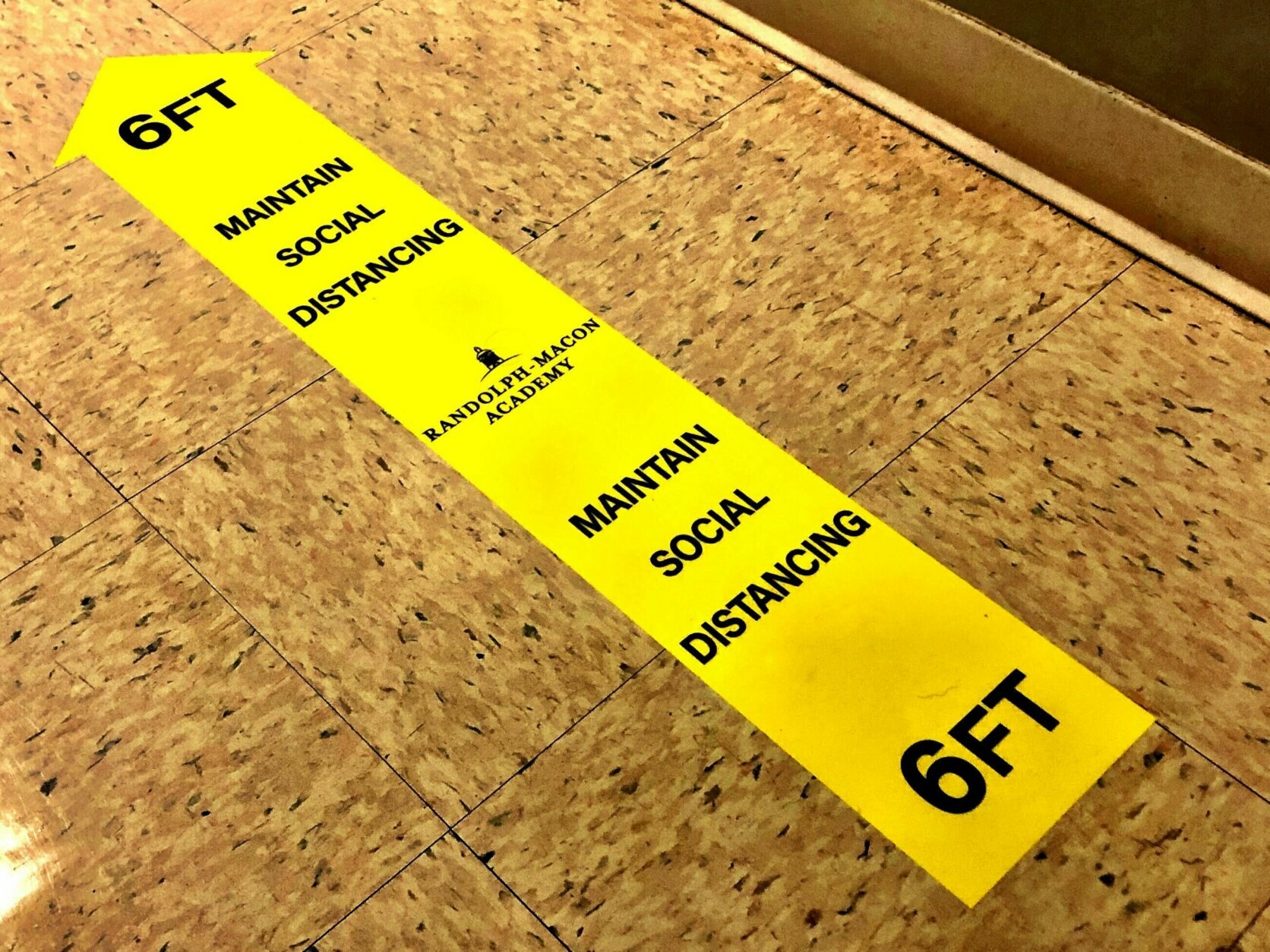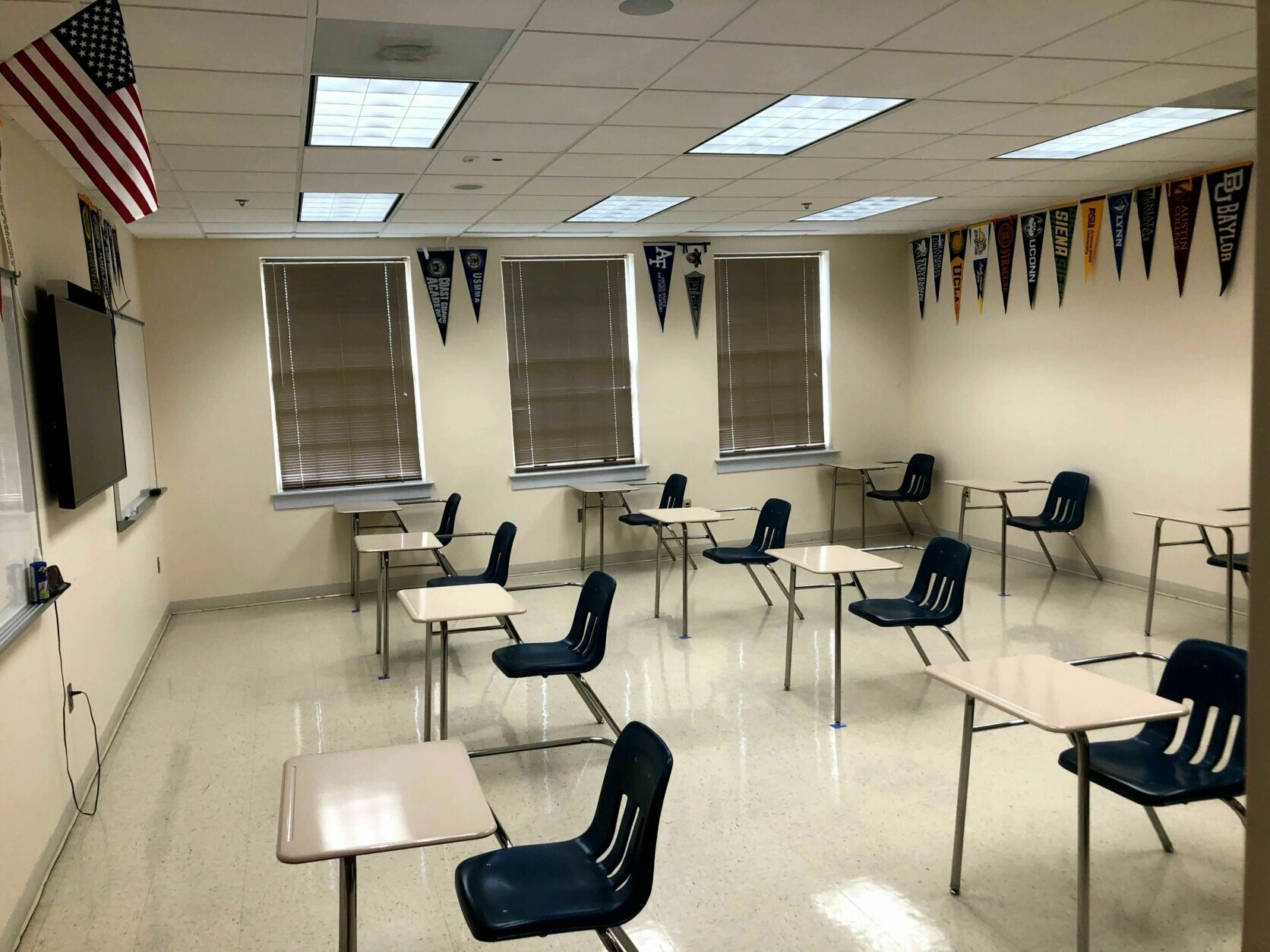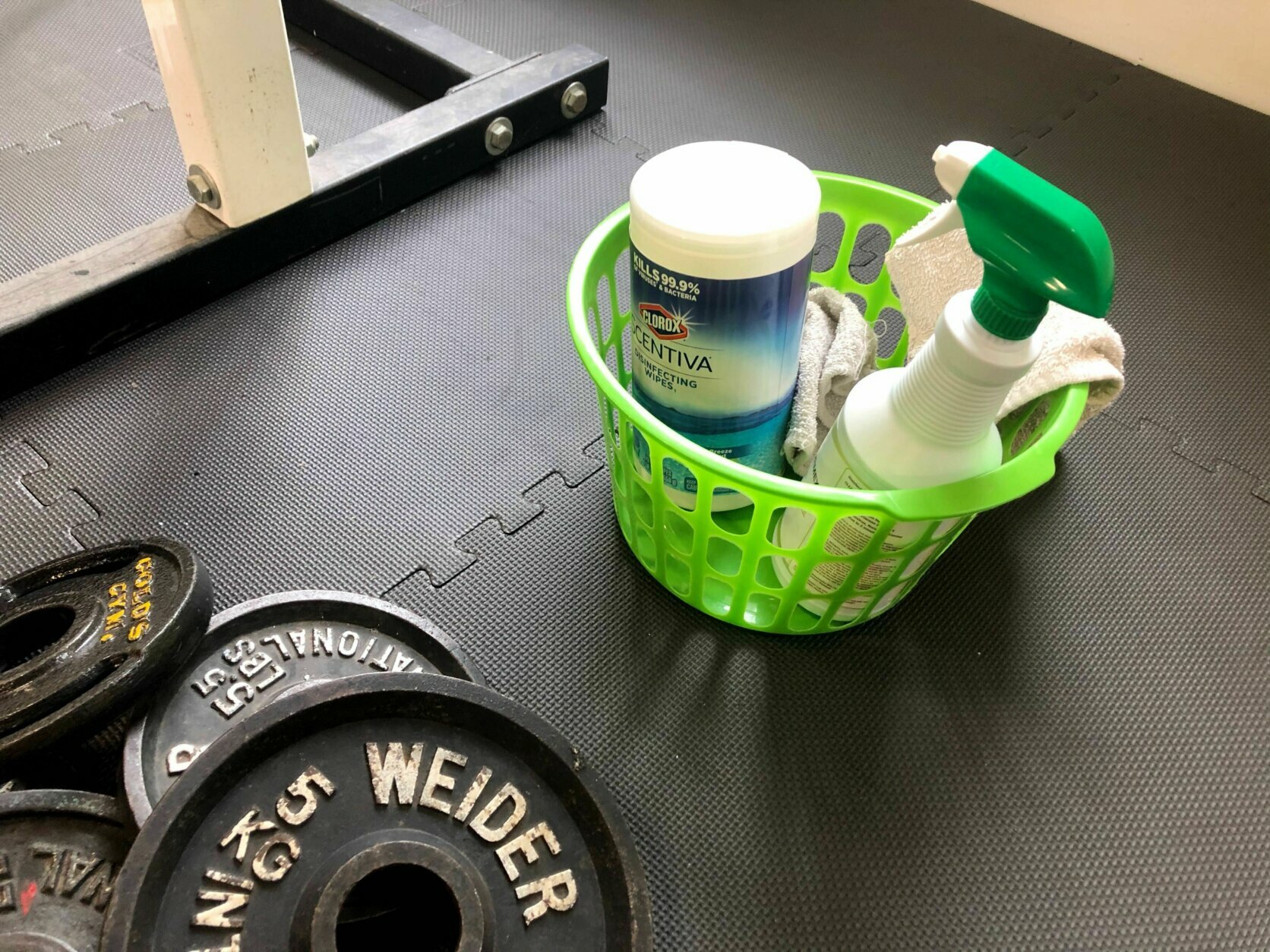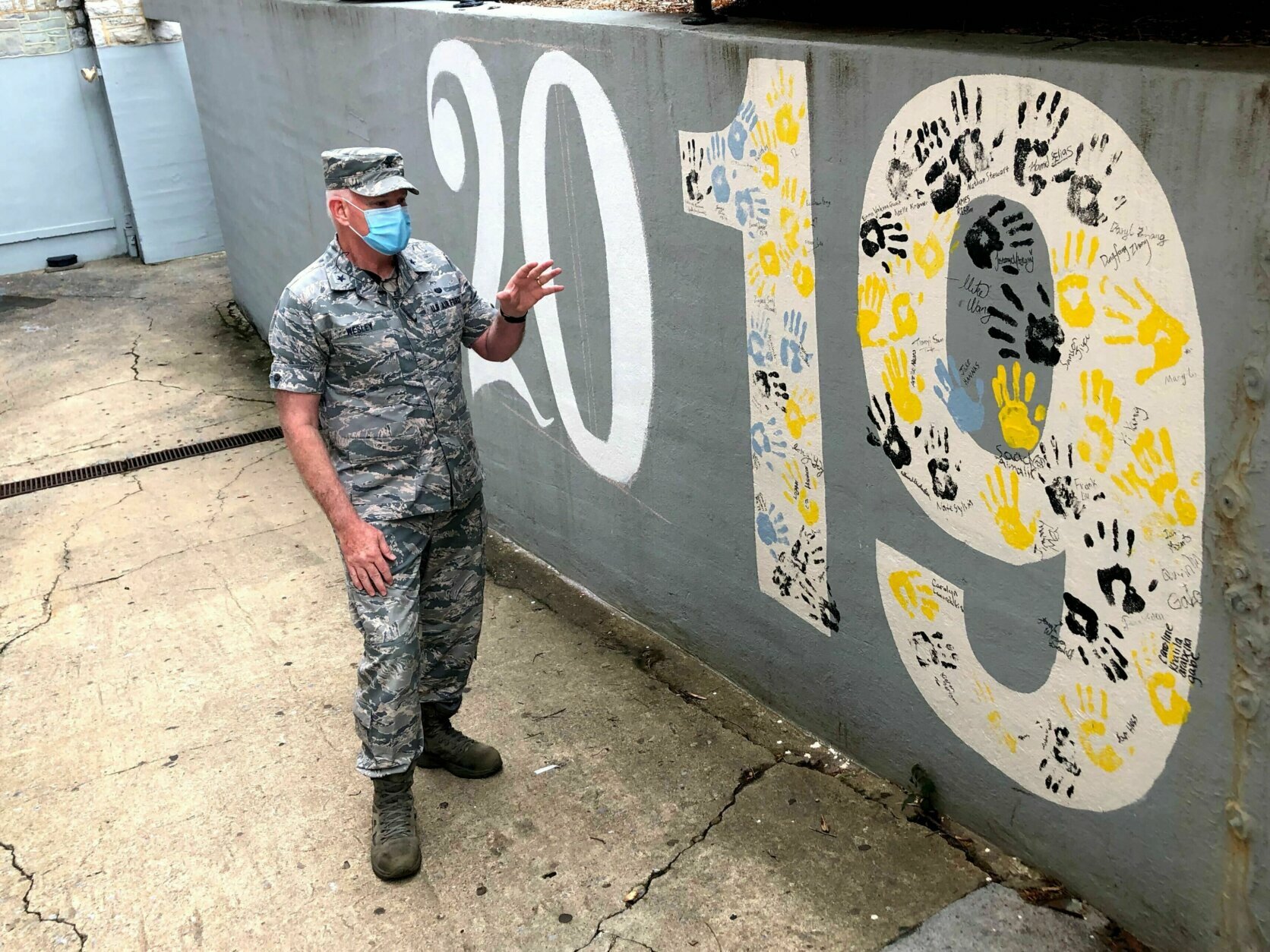“Male on the hall,” calls out retired Air Force Brigadier General David Wesley as he gets ready to enter the mostly empty girls’ dormitory at Randolph-Macon Academy, in Front Royal, Virginia. After hearing the acknowledgment from a female supervisor on duty, Wesley swings open the door, ready to demonstrate how the private boarding school intends to open safely, despite the ongoing COVID-19 pandemic.
Gen. Wesley — who introduces himself as “Dave” — is the head of school at the academy, which sits atop a hill in Front Royal, Virginia. “If you see it on the web page as ‘President,’ it just means I’m the principal of the high school.”
With students arriving over the weekend, registration continued Tuesday at Randolph-Macon, where 75% of the population consists of boarding students from around the country. The remaining 25% are day students at the academy, which offers university-preparatory education in an Air Force Junior ROTC program.
Wesley said most of the students don’t make a career of the military: “The military isn’t what we teach, it’s how we teach it,” he said — meaning that what’s learned at the academy will be valuable to a young person as they become an adult.
While most public schools surrounding the D.C. area will be beginning the year virtually, Wesley said the academy spent the late spring and summer — after the arrival of the coronavirus — preparing to be able to open in person for the fall semester.
“Our goal has always been to prepare young people for success, in college and beyond,” said Wesley. “Boarding schools do that in a kinetic way — young people work together, live together, eat together, strive together, in and out of the classroom.”
“In a sense, you can’t do boarding school unless you’re here,” he said.
So, Wesley and staff have made some logistical tweaks and done a lot of planning to be ready for students from all over — 25% of students are international — with the intention of providing a safe, stimulating school experience.
Arriving students will be tested for COVID-19, and be quarantined for a day or so until their results are received. Social distancing and the wearing of masks are built into the experience.
Yet Wesley is a realist: “Twenty-six years on active duty taught me that no plan survives contact with the enemy,” he said.
With decades of military training and leadership behind him, Wesley and the Randolph-Macon Academy staff, students, and parents are all-in — a year of tuition for upper school boarding students costs about $41,000.
“I’ve never seen our students more anxious to get back to class, because they want to be with each other,” Wesley said.
“Requirements that are given to us come from the (Centers for Disease Control and Prevention) and the Virginia Department of Health, and the governor has been really clear about us following those guidelines,” Wesley said. “RMA is large enough, she can hold 400 or 500 students easily — we’re in the 230 range right now.”

